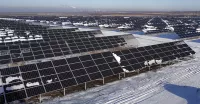
Journalisten

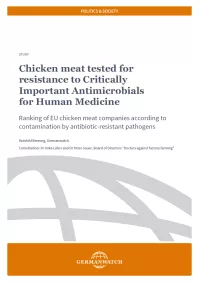
Germanwatch discloses: Chicken meat from the PHW-Group, Germany's largest poultry company, is almost 60 percent contaminated with antibiotic-resistant pathogens. This is the result of a Germanwatch study in which chicken meat samples from the three largest EU producers were tested in the laboratory. Every third sample even showed resistance to reserve antibiotics. These are emergency antibiotics that people need when other antibiotics no longer help. The more resistant pathogens are introduced into the food chain and into our kitchens with chicken meat, the greater the health risk that these last-line antibiotics will lose their effectiveness.
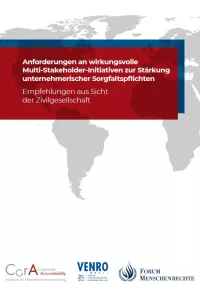
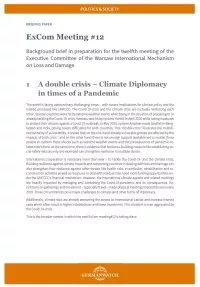
The Briefing Paper on the 12th meeting of the Executive Committee (ExCom) of the Warsaw International Mechanism on Loss and Damage from 12-16th October 2020 is mainly directed at persons interested in the discussions on Loss and Damage within the UNFCCC process.
The meeting will take place in the middle of the Covid-19-crisis that comes across with severe challenges for vulnerable groups but also in regards of keeping up climate diplomacy.
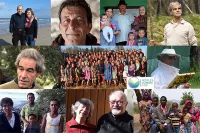
On Tuesday, 6th of October, the European Parliament will vote on the EU Climate Law and set its position on the EU 2030 climate target. In a letter to the Members of the European Parliament the plaintiffs of the People's Climate Case urge them to decide on higher emission cuts by 2030 and to support access to justice for citizens.
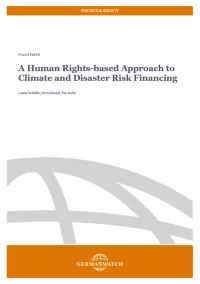
Climate and disaster risk financing (CDRF) measures and activities that governments or other actors carry out can affect the enjoyment of human rights. The Paris Agreement therefore recognises that, “Parties should, when taking action to address climate change, respect, promote and consider their respective obligations on human rights […]” (Paris Agreement 2015). This paper presents a human rights-based approach to Climate and Disaster Risk Financing (HRBA-CDRF).
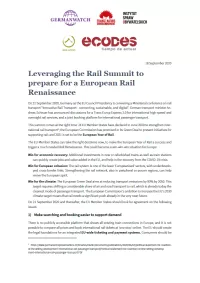
To become climate neutral by 2050 at the latest, the European Union needs to reduce transport emissions by 90%. Rail as one of the cleanest modes of transport can play a key role here. On 21 September 2020, Germany as the EU Council Presidency is convening a Ministerial conference on rail transport. NGOs from Germany, Poland, France, Spain and Brussels are calling on EU transport ministers to initiatie a European Rail Renaissance. This would be a win for economic recovery, European cohesion and the climate. The declaration asks for concrete measures to make rail cross-border rail transport in Europe more attractive.
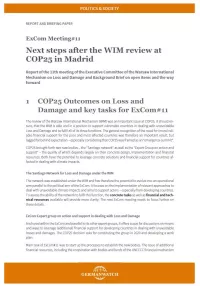
The 11th meeting of the Executive Committee of the Warsaw Inernational Mechanism took place at the beginning of the corona crisis and therefore faced severe organisational challenges. It was held virtually, which posed challenges like internet connectivity problems and lack of possibilities for inclusive participation. Topics of this meeting were for example to discuss inter alia COP25 outcomes like the establishment of the “Santiago network on loss and damage” and the "Expert Group on action and support".
The report covers the key expectations for the meeting, the outcomes, the special corona context as well as recommendations on the way forward and necessary next steps.
